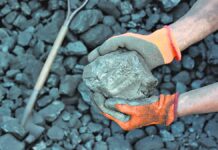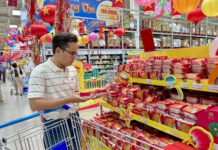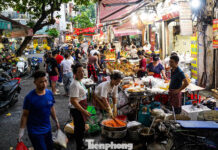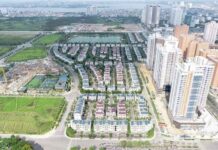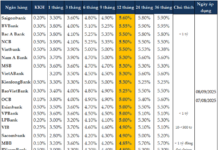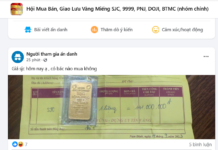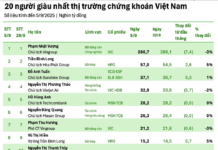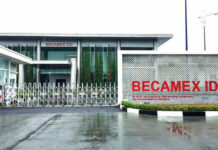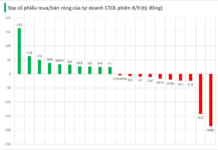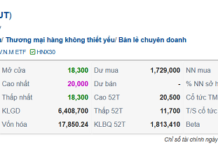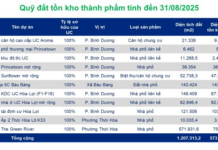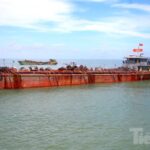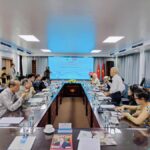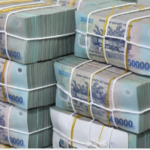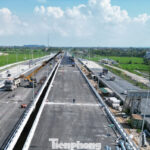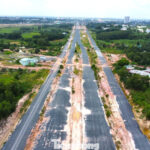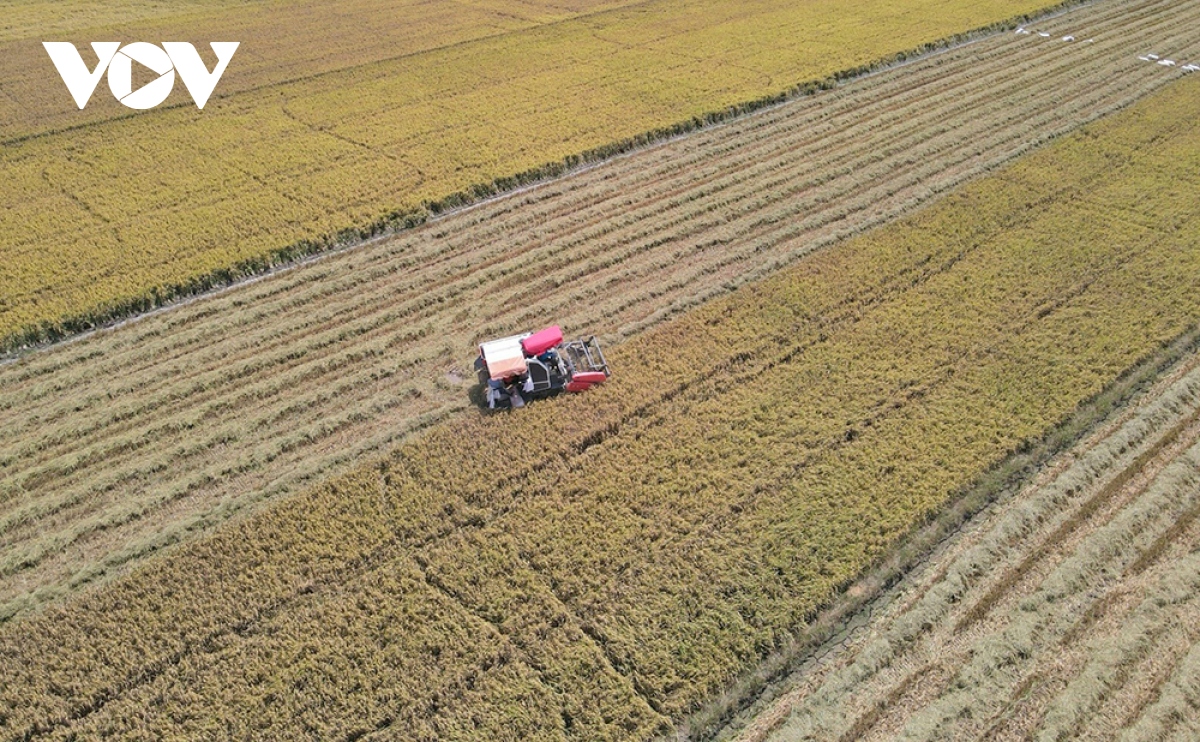
The Mekong Delta, Vietnam’s rice granary, produces between 24 and 25 million tons of rice annually, contributing up to 90% of the country’s rice exports. After the rice harvest, locals in the Mekong Delta collect the straw to sell, grow mushrooms, and compost it into organic fertilizer. The price of straw in the fields ranges from VND 400,000 to 500,000 per hectare. On average, each hectare can yield between 170 and 180 straw rolls, which are sold for VND 15,000 to 20,000 each. During high demand, the price per roll can reach up to VND 25,000-30,000.
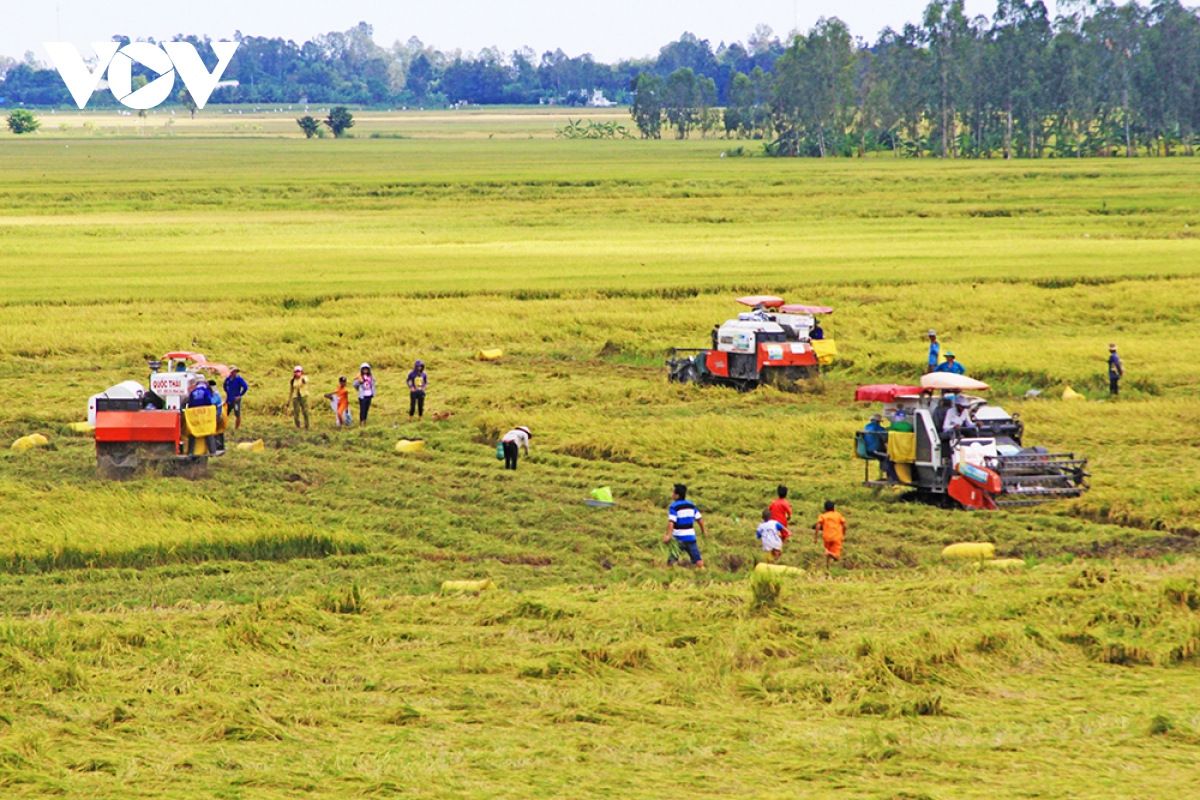
In Hong Ngu district, Dong Thap province, after the rice harvest, locals hire machines to remove the straw from the fields quickly and efficiently, reducing manual labor.
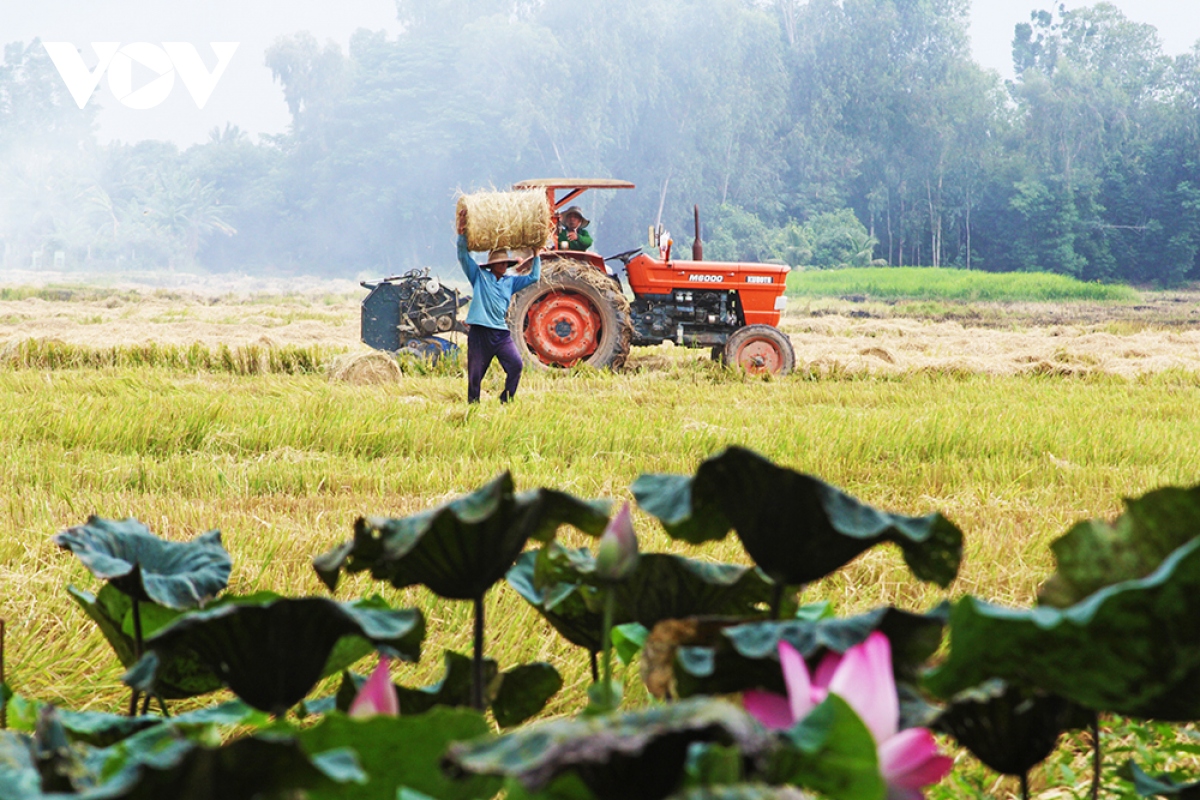
The sight of smoky fields from burning straw, which affects the environment, is becoming less common. Instead, locals are removing the straw from the fields to sell to mushroom growers or to compost it into organic fertilizer for their crops. After harvesting the rice, locals hire machines to roll up the straw.
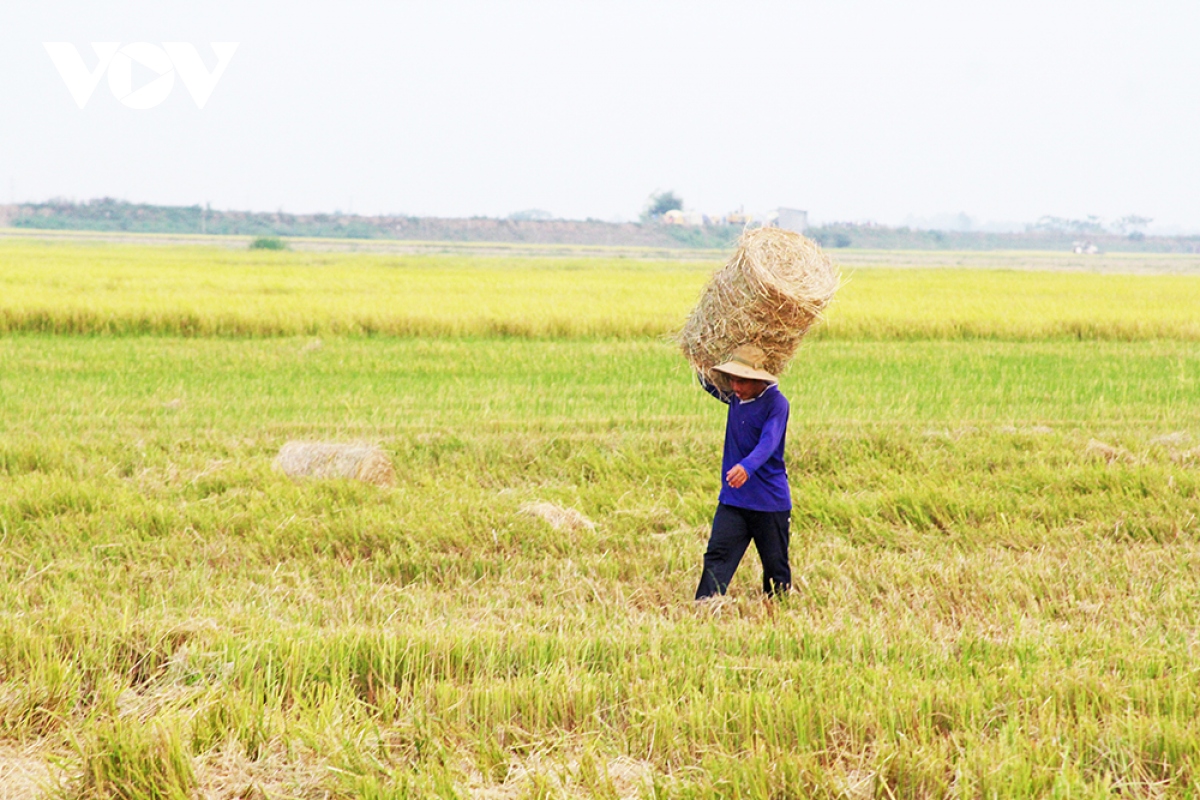
Farmers carrying straw away from the fields
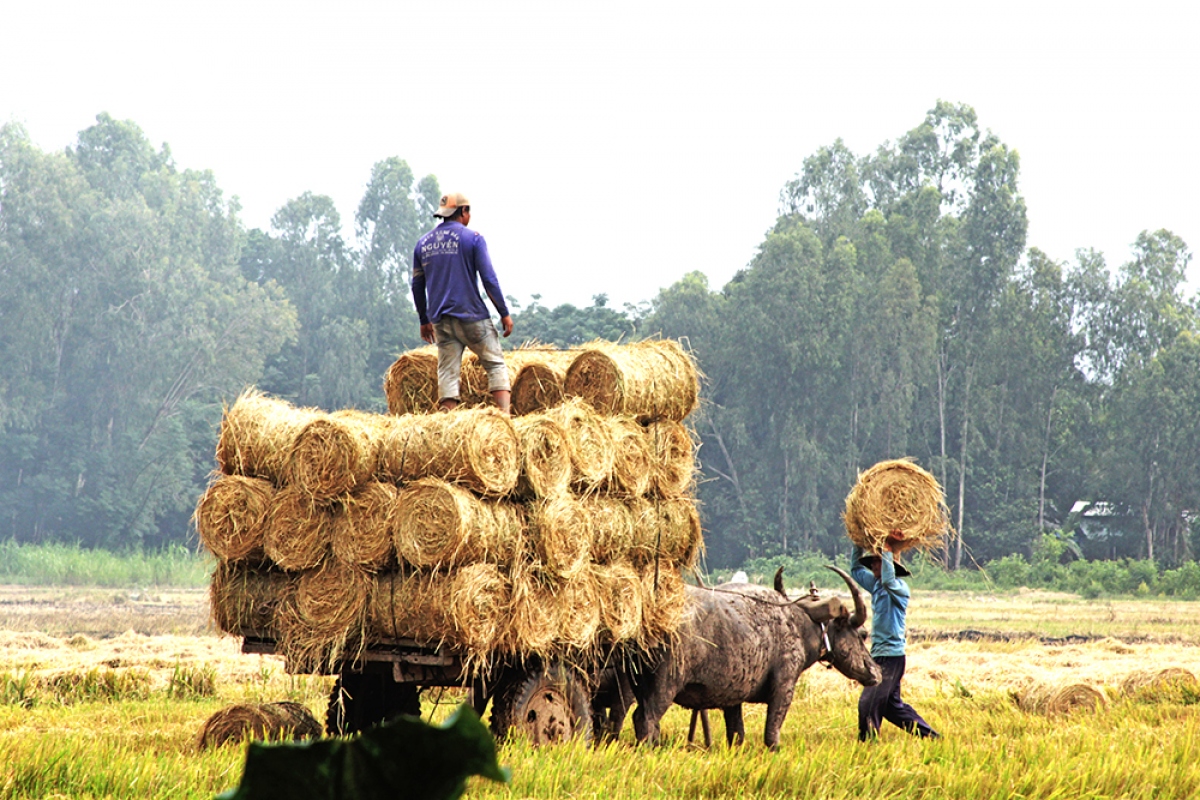
Many farmers in Hong Ngu district, Dong Thap province, have been collecting and selling straw to users, increasing their income from rice farming.
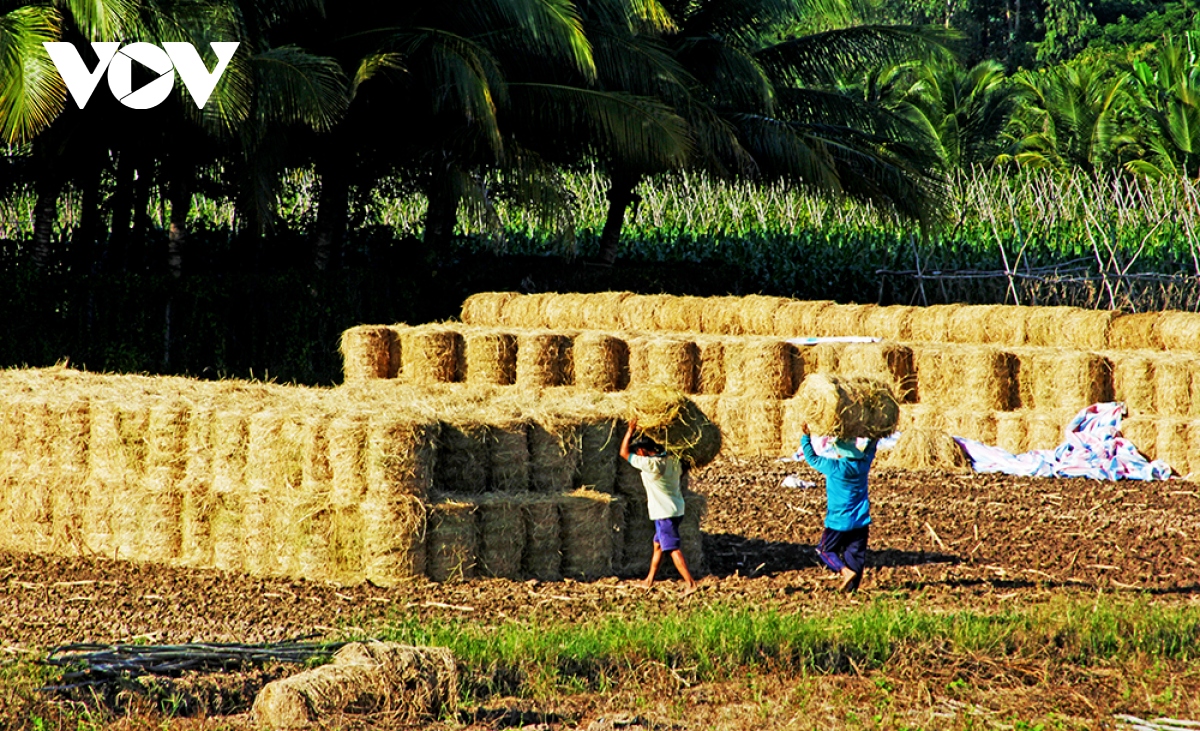
Stacks of straw ready for transportation to consumers
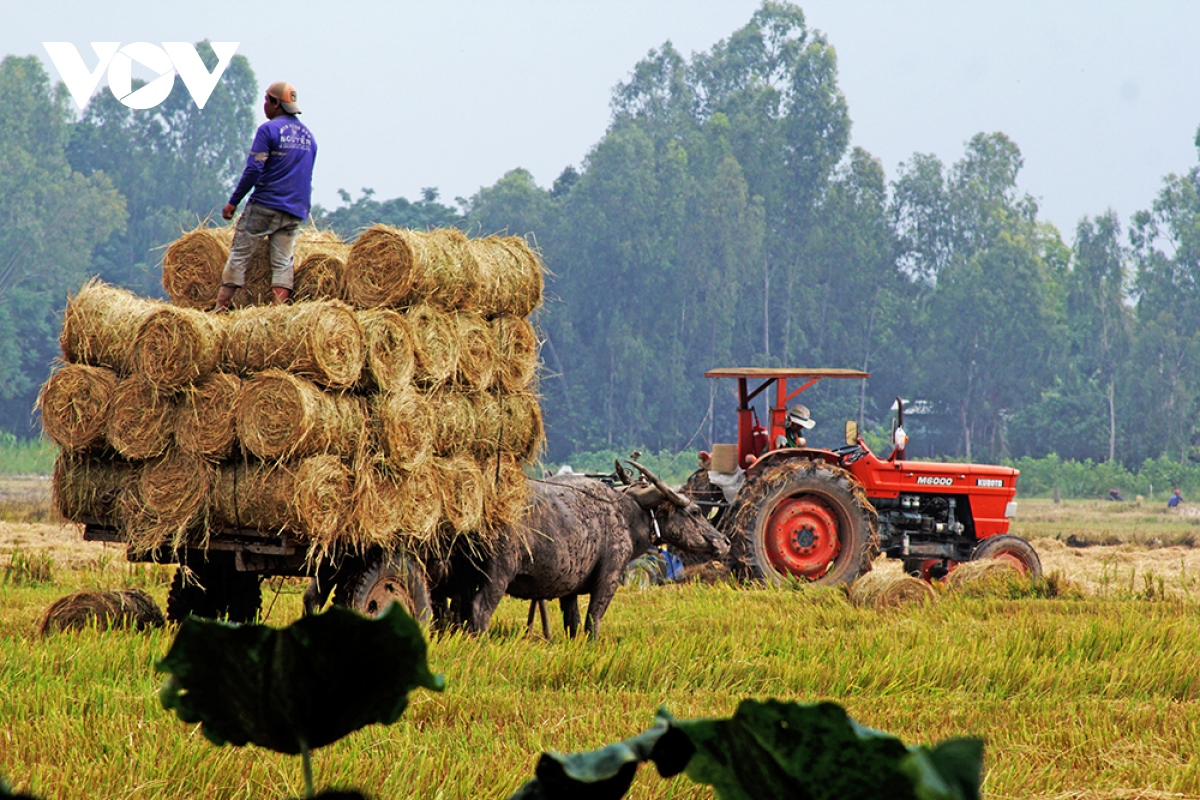
The price of straw in the fields ranges from VND 400,000 to 500,000 per hectare.
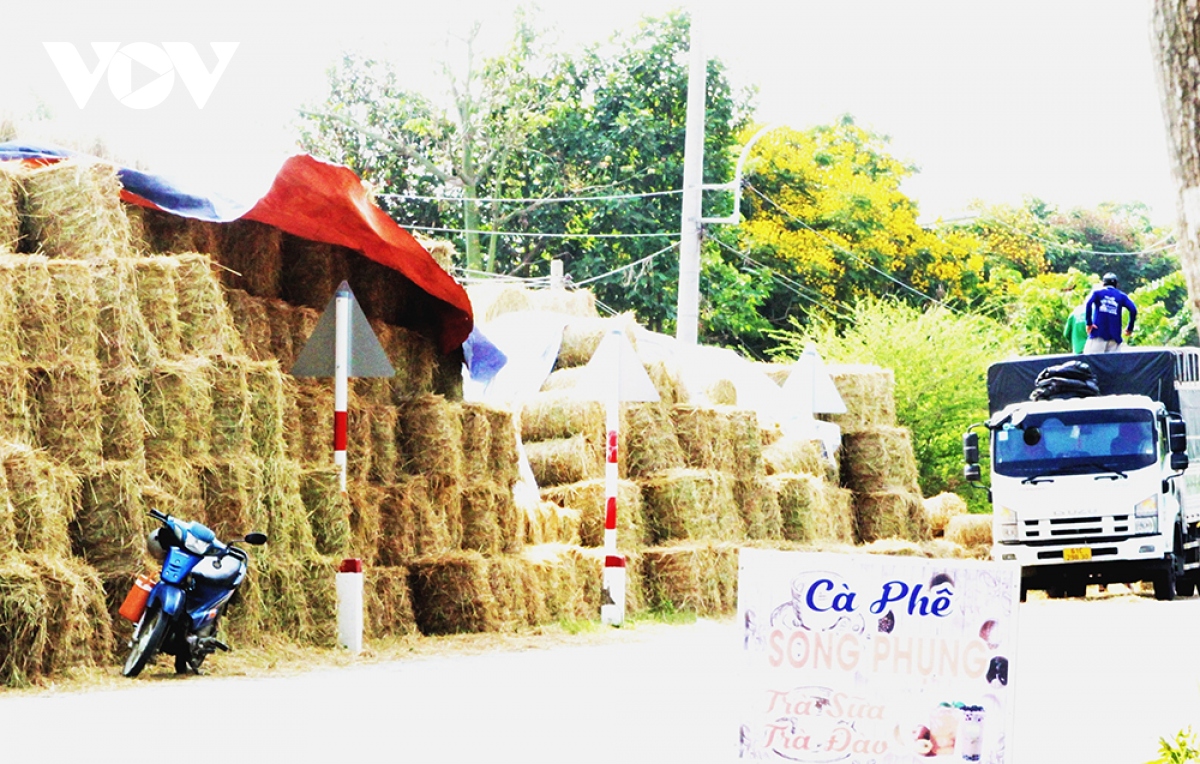
Straw is transported by trucks to consumers in various provinces and cities.
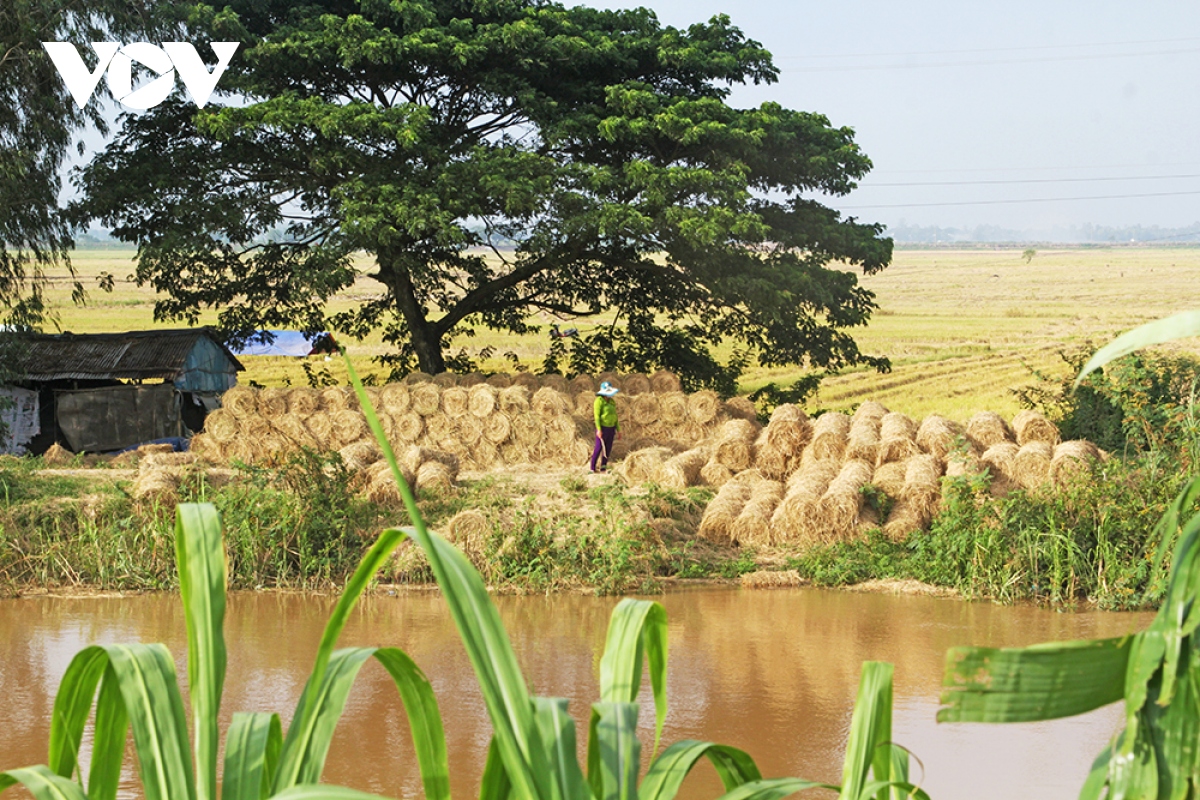
In addition to road transportation, locals also use waterways to transport straw to consumers.
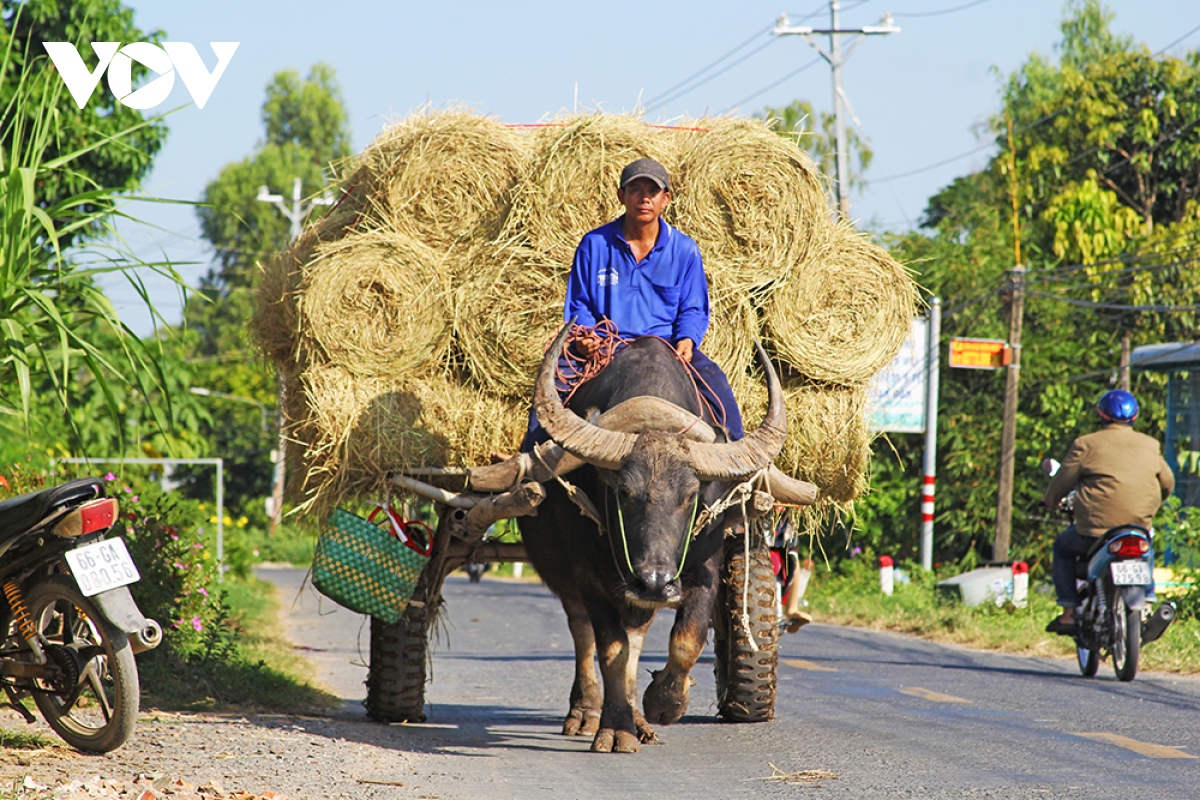
Locals transporting straw home for livestock feeding
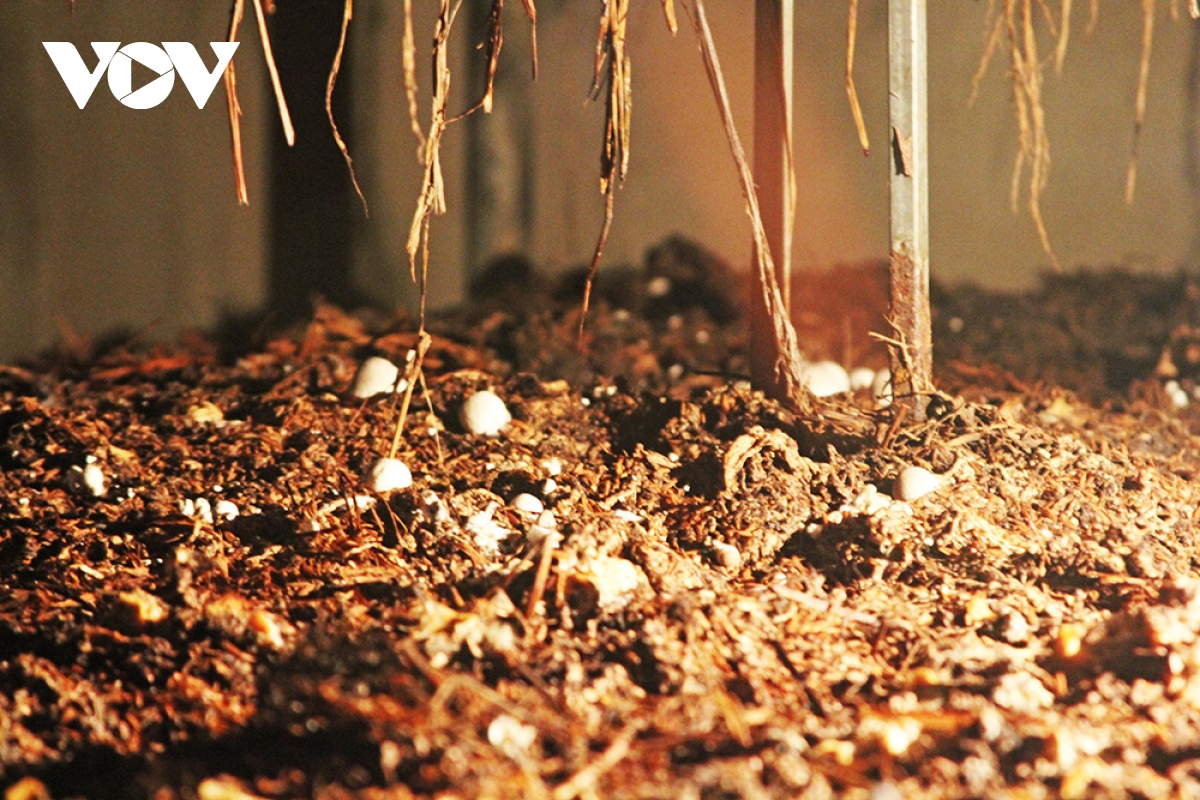
Straw mushroom farming model increases income for locals.
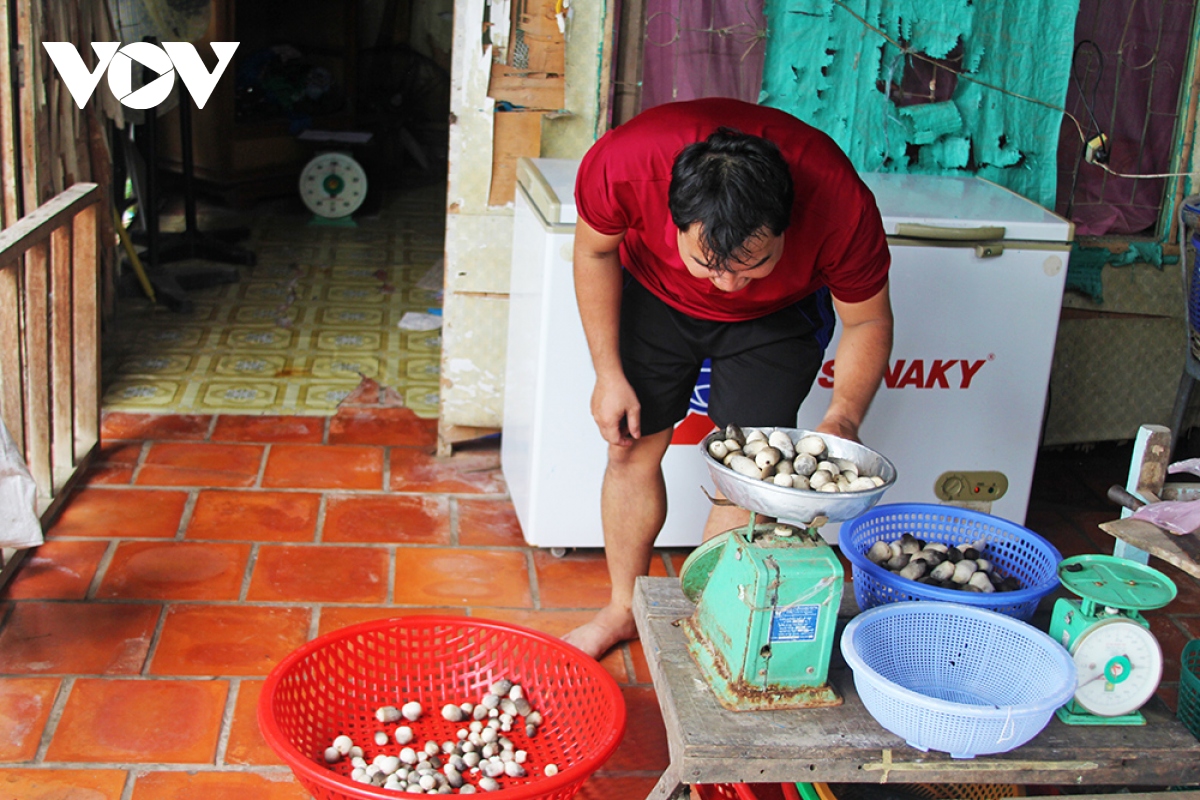
Implementing a circular economy model using straw has helped many households increase their income by tens of millions of dong.
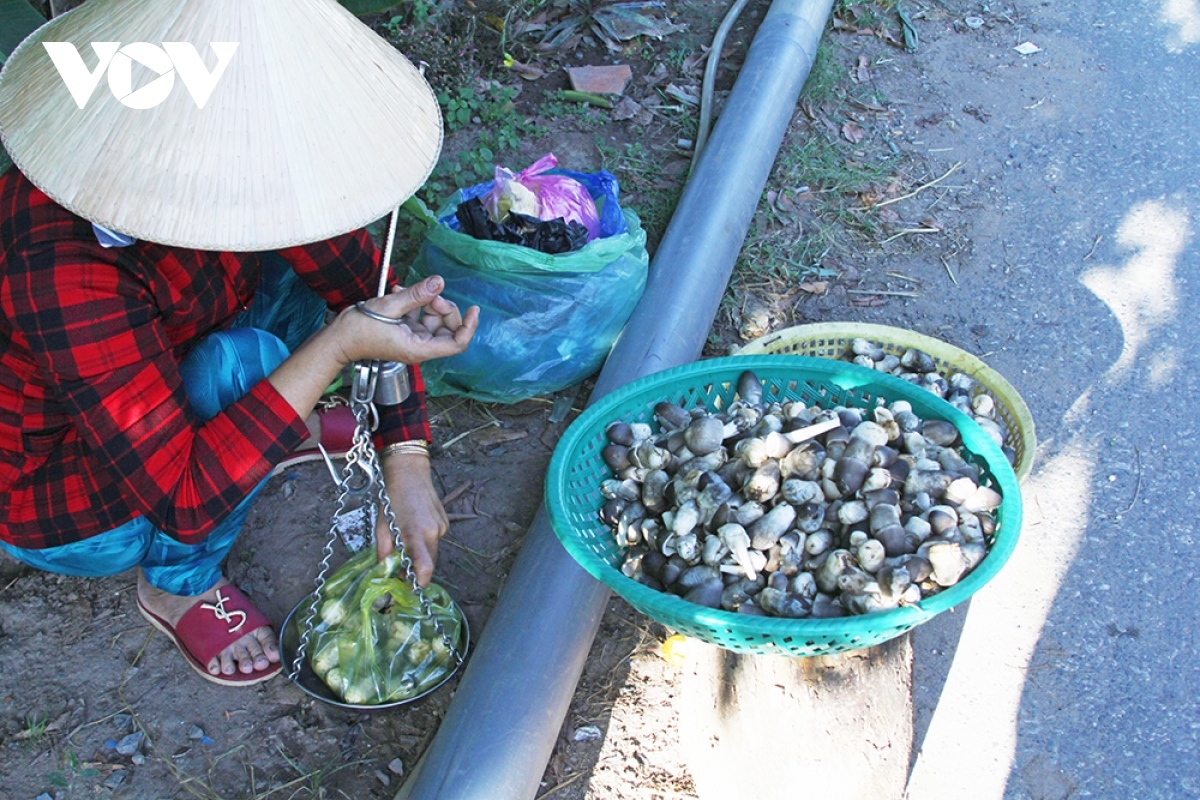
The straw mushroom farming model protects the environment and creates jobs for people in rural areas.
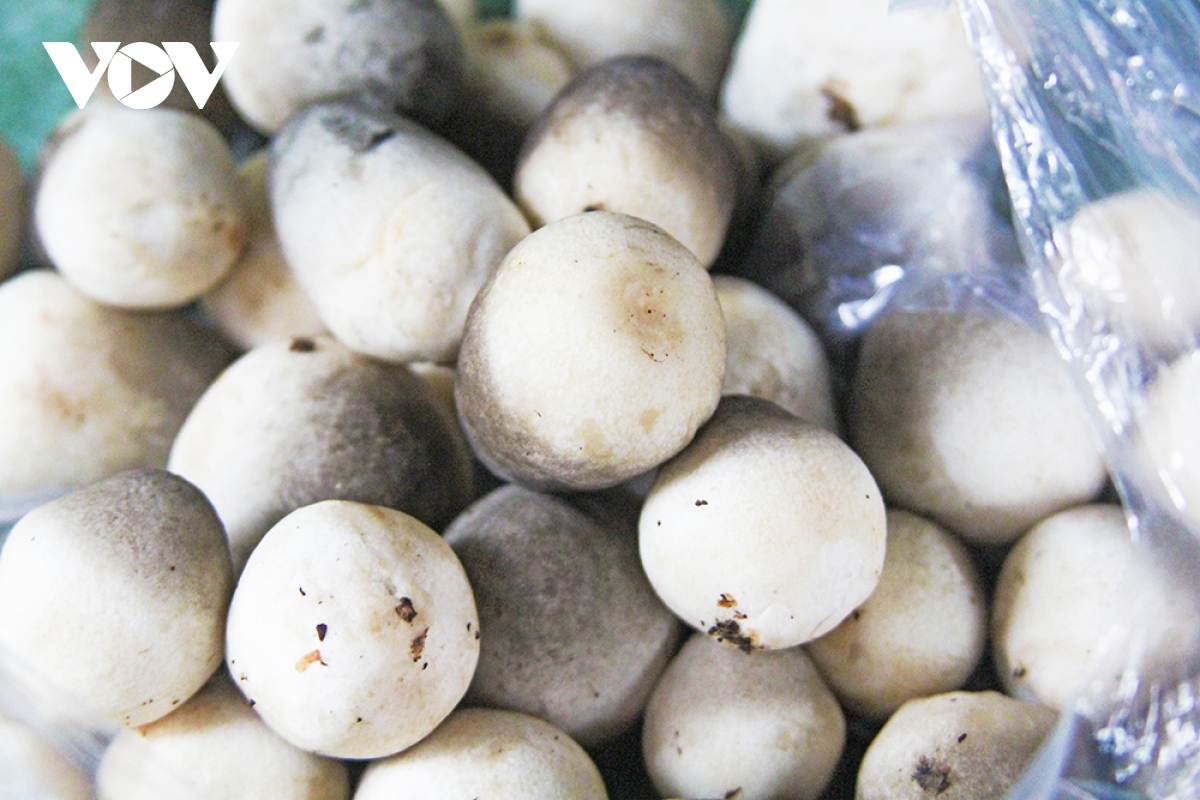
Straw mushrooms are purchased by traders for consumption in different localities.
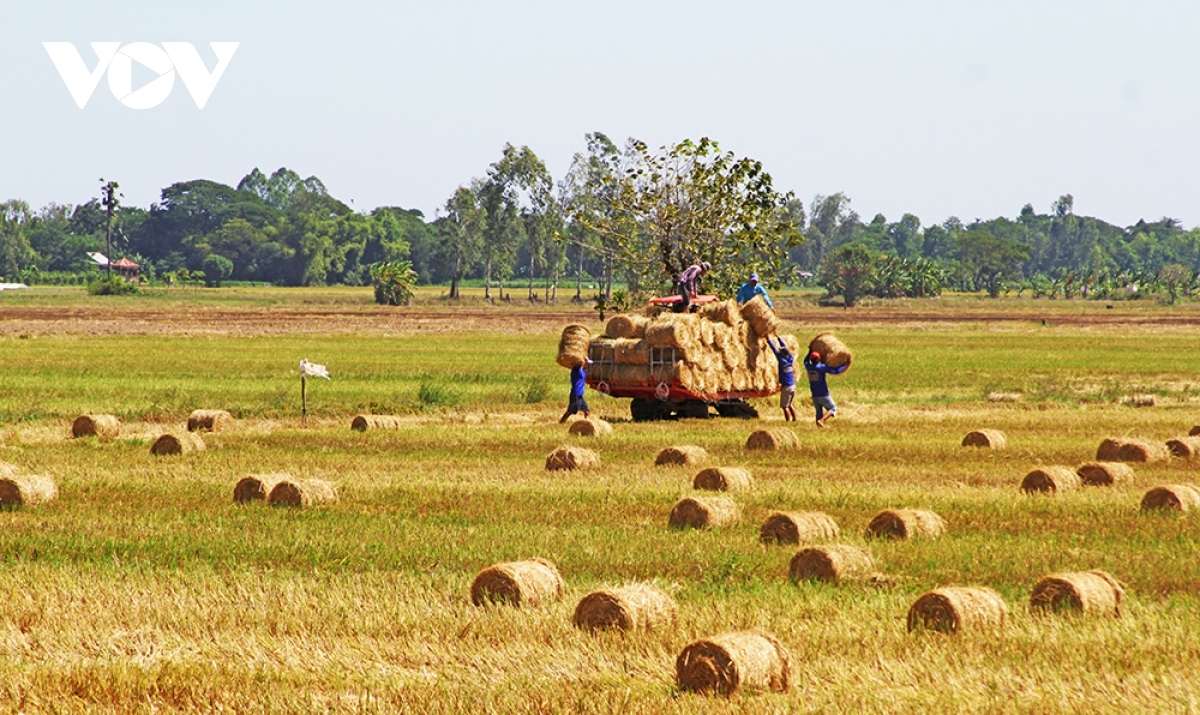
On average, each hectare can yield between 170 and 180 straw rolls, which are sold for VND 15,000 to 20,000 each.
The Ultimate Guide to the Art of Desalinating Beach Sand for Highway Construction: An Insider’s Perspective
The beach sand, sourced from the shores of Soc Trang, undergoes a unique process of desalination. This carefully extracted sand is transported to the sweetwater region of Hau River, approximately 40km from the mine, to ensure a thorough removal of salinity. Over two months since its commencement, this beach sand mine has successfully supplied over 90,000 cubic meters of sand for the Can Tho-Ca Mau expressway project.
Conserving and Restoring Water Resources in the Mekong Delta: An Urgent Priority
“The Mekong Delta is being reshaped at an alarming rate, with new and adverse features that differ from its natural historical state. As such, the conservation and restoration of water resources to ensure the sustainable development of the Mekong Delta is of utmost urgency.”
The Luxury Apartment Stella Icon: A Rising Star in the Mekong Delta Property Market
The recent groundbreaking of the luxury apartment project, Stella Icon, within the KITA Airport City development is injecting excitement into Can Tho’s real estate market. This project is set to propel the city’s status as the capital of the Mekong Delta, transforming it into a vibrant and dynamic hub for the entire region.

